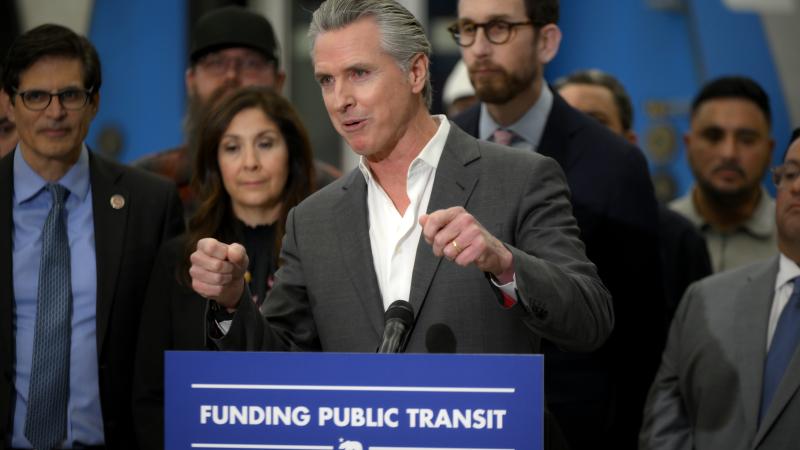ESG push for net-zero emissions in agriculture will destroy farms, raise food prices, group warns
According to the report, farmers will see costs rise at least 34% as a result of net-zero emissions policies and corporate ESG reporting requirements. Families' annual grocery bills will go up by 15%.
Consumers’ Research, a consumer advocacy nonprofit group, launched a six-figure campaign this month to raise awareness about the threat posed by environment, social and governance (ESG) on agriculture. This effort will, according to Consumers’ Research, will drive up the cost of operation on America’s farms and increase food prices at a time when consumers are already struggling with the impacts of inflation on their grocery bills.
“A lot has been made of the net zero push on the fossil fuel industry, and people are starting to wake up to the implications it has on the electrical grid. The reason we launched this campaign is we want to make sure people understand it goes farther than that — all the way to the apple that you buy at the grocery store,” Will Hild, executive director of Consumers’ Research, told Just the News.
The six-figure Consumers’ Research campaign includes television ads airing in Washington, D.C., and New York, a billboard in Times Square, a website, a series of mobile billboards in D.C., New York City, and Charlotte, North Carolina, and a digital campaign.
Targeted
Agriculture has become a favorite target of climate activists and the ESG movement. Earlier this year, the World Economic Forum (WEF) released a report on models for financing a “sustainable transition” in agriculture.
“Global food systems need to shift rapidly to more sustainable forms of production as part of broader food system transformation efforts. Food systems accounted for more than 30% of global greenhouse gas emissions in 2020,” the report warns.
Modern agriculture has led to massive increases in crop yields for just about every crop across multiple regions of the globe, but according to the WEF report, it’s causing climate change, destroying rainforests, and draining global freshwater supplies.
Among other initiatives it proposes, the report says farmers should be “offered a flexible stack of financial and non-financial services” to get them to switch to regenerative agriculture. Regenerative farming is an organic approach to agriculture that, among other things, uses manure instead of modern fertilizers.
In 2022, Sri Lanka became an organic farming experiment when it banned modern pesticides and fertilizers, which resulted in a complete collapse of the Asian nation’s agriculture sector and economy.
Hild said the ESG movement is pushing American farms in the same direction. While ESG standards are thought of as something that’s adopted by corporations, Hild said these are filtering down to the family farm. The banks, he explained, are going to start using their loan portfolios to put net-zero emissions requirements into finance. These standards would assess the emissions along the entire supply chain, what’s called Scope 3 emissions. This means that getting a loan or crop insurance, both of which are vital to family farms, would require the operations to hit emission reduction targets.
Blackrock CEO “Larry Fink sitting on Wall Street like a fat cat is going to be dictating what the Johnson family farm can do,” Hild said. Blackrock has been a key proponent of ESG initiatives in the world of finance.
The Buckeye Institute, a free-market think tank, released a report earlier this year estimating the cost of compliance with net-zero emissions policies and corporate ESG reporting requirements on American farms. According to the report, farmers will see costs rise at least 34%.
When these costs are passed onto the consumer, a family with an annual grocery bill of $8,320 can expect that to go up by 15% to $9,650. The cost of American cheese will rise an estimated 78%, beef 70%, and sugar 43%.
Disappearing farms
In a video on the Consumers’ Research campaign website, Stephanie Nash, who helps run a dairy farm near Nashville, Tennessee, told Hild how her family moved the family’s operations from California to Tennessee due to water availability concerns and burdensome regulations, which she said drove up the cost of the operation.
Among the requirements in California are digesters, which reduce the methane given off by animal wastes. Nash said, besides the cost, there’s another problem with regulatory compliance.
“Eventually the government is going to ask for more,” she said.
The dairies receive carbon credits for their digesters, but the Nash family worried what happens when the government asks for more carbon credits and they have none to give.
Dairy farms across the U.S., Nash explained, are disappearing. As a result of the high cost of operations, Nash said, there were approximately 75,000 dairies in the U.S. in 2003, and there are approximately 25,000 today.
“ESG has been a big factor on how we can be as producers, how we as farmers and ranchers are able to produce food for America and the world,” she said.
Hild said the problem with these agricultural-related ESG measures is they’re set by people who have never farmed and have no idea what it takes to make an agricultural operation work. He said it’s the embodiment of what former President Dwight Eisenhower meant when he said that “farming looks mighty easy when your plow is a pencil and you're a thousand miles from the corn field.”
“It's really easy to plan all this stuff out when you don't have to actually do it in the real world,” Hild said.
















